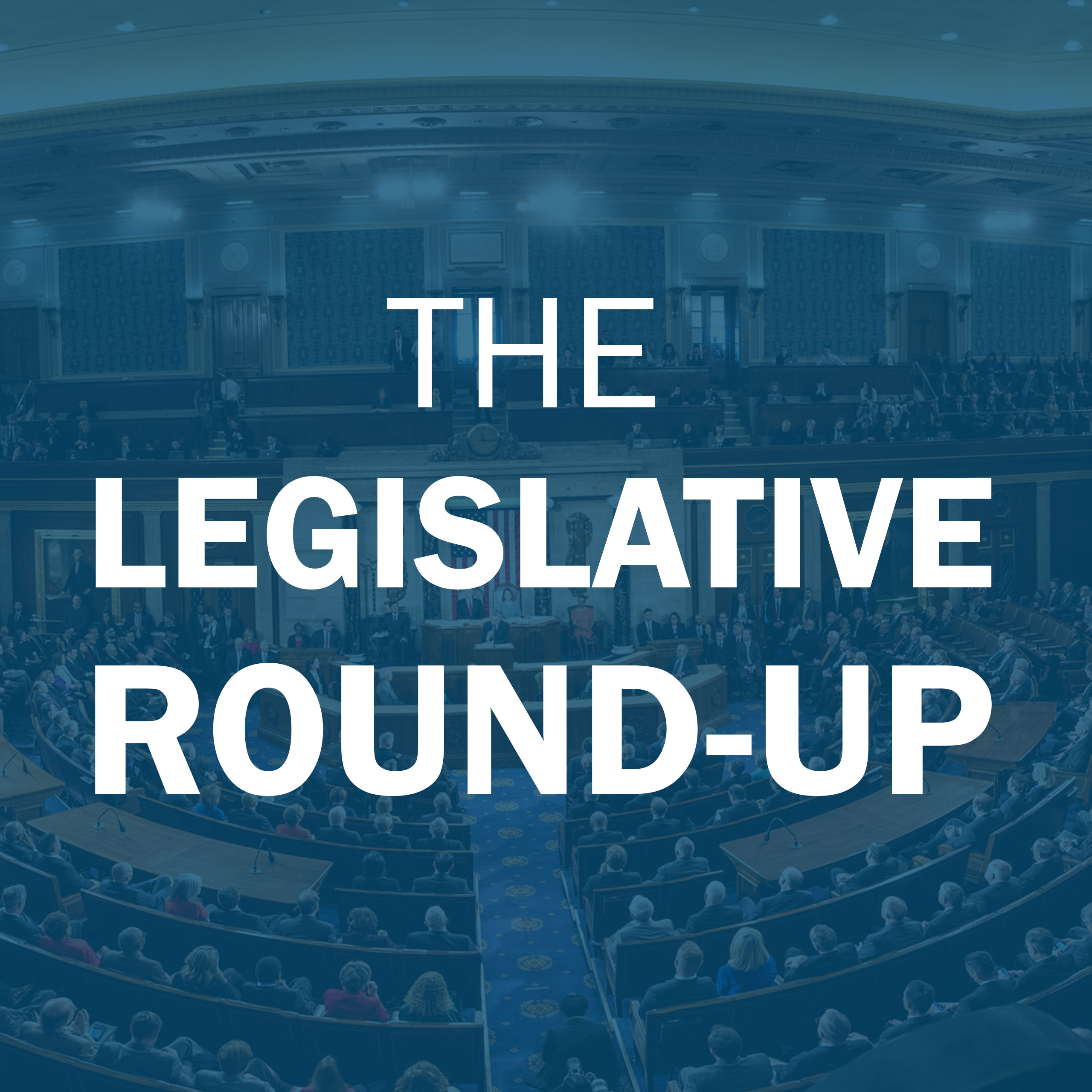Legislative Round-Up | April 2021
Included in this Round-Up
- TNPA Takes to the Hill… Virtually
- U.S. Supreme Court and the Amicus Brief on Donor Privacy
- An Important Victory in Oklahoma
- Congressional Spotlight: Senator Tim Scott (R-SC)
TNPA Takes to the Hill…Virtually
On April 20th, two years to the day from its first-ever Capitol Hill Day, TNPA conducted its sixth Capitol Hill Day. The first three were face-to-face Hill Days, but with Covid, the last three have been virtual.
This most recent Hill Day focused on three important issues for the nonprofit community:
- The need for a robust national privacy statute – providing one single standard for the responsible use of data, rather than allowing a “patchwork quilt” of varying, and often contradictory, state privacy statutes
- Expansion of the current Universal Charitable Deduction
- Legislation reforming the USPS, providing long-need structural reform to the Postal Service
To prevail on these issues will require legislative leadership in both the House and the Senate on both sides of the aisle.
There were several highlights from our eight meetings on the Hill:
A meeting with Congressman Peter Welch (D-VT) covered the need for national privacy legislation as well as postal reform legislation.
Congressman Welch has a long history of leadership on legislation dealing with data/privacy and serves on the committee of jurisdiction in the House—the Energy & Commerce Committee. Additionally, Congressman Welch serves on the committee with postal jurisdiction in the House—the Oversight & Reform Committee. During our discussion on postal reform, the Congressman mentioned that all mailers—be they nonprofit or for-profit—face a daunting challenge of postal rate increases far in excess of the rate of inflation. Clearly, postal reform legislation is needed to reduce the enormous burden these potentially huge rate increases pose.
A meeting with Senator Catherine Cortez Masto (D-NV) provided an opportunity for TNPA to dialogue with the Senator, who recently became the first Democrat on the Senate Finance Committee to cosponsor the Universal Charitable Deduction Bill of Senators James Lankford (R-OK) and Chris Coons (D-DE). With the addition of Senator Cortez Masto, the Universal Charitable Deduction Bill now has nine Senators who have signed onto the legislation. Importabtly, three of the cosponsors serve on the Finance Committee, which is the committee of jurisdiction for this legislation: two Republicans, Senators Lankford and Tim Scott (SC), and now one Democrat, Senator Cortez Masto.
In addition to these two meetings, TNPA met with the offices of Senator Tom Carper (D-DE), Senator James Lankford (R-OK), Congresswoman Carolyn Maloney (D-NY), Senator Gary Peters (D-MI), Senator Jacky Rosen (D-NV), Senator Tim Scott (R-SC).
Key take aways on our priority issues
National Privacy Legislation
Enactment of a national privacy statute, which would provide one clear national standard for the handling of data, continues to be a priority issue for TNPA. However, the Congressional focus on the enactment of the $1.9 trillion aid package and the current discussion of the $2.3 trillion infrastructure package have crowded out many other issues, especially because the Senate Commerce, Science & Transportation Committee, which is the principal committee for privacy legislation, also has much of the jurisdiction over the infrastructure package. Nonetheless, meeting with key players on the Hill now is helping to lay a foundation for movement on this legislation in the future.
Postal Reform Legislation
As we face a daunting potential 6.5% to 8.5% increase in postal rates (depending on the class of mail), TNPA launched a letter-writing campaign to members of Congress asking them to contact the Postal Board of Governors to oppose this massive rate increase. To date, TNPA members and other postal stakeholders have sent over 350 emails and 105 personalized letters on letterhead.
The Postal Service is taking notice. On a recent conference call, Postmaster General DeJoy mentioned that he has been hearing complaints from folks on the Hill about the large rate increases. Good. We are being heard!
More voices are still needed. You can take action now:
- Sign an electronic letter to Congress.
- Write a letter to Congress on your organization’s letterhead (download a template here).
In the long-term, a bipartisan postal reform bill is what is genuinely needed. There was general consensus during our several postal-related meetings that an effective bipartisan postal reform bill should include a few key elements:
- Moving the enormous liability of the retiree healthcare costs from the USPS and moving it to Medicare, as is the case with most retirees
- Predictable postal rate increases no higher than the rate of inflation or Consumer Price Index (CPI)
- Improved performance and delivery standards
Universal Charitable Deduction
A bright spot during our day of meetings was the momentum and enthusiasm we heard for raising the cap on the Universal Charitable Deduction. For tax year 2021 the cap on this deduction is $300 for single taxpayers and $600 for married couples filing jointly. There was quite a bit of discussion during our meetings on this issue that raising the cap for 2022 to $600 for single taxpayers and $1,200 for married couples is an achievable goal. In fact, an increase to this level was incorporated in last September’s Senate Republican Covid Aid Package, which was proposed but failed to gain the necessary 60 votes to be considered on the Senate Floor.
U.S. Supreme Court and the Amicus Brief on Donor Privacy
Yesterday, April 26, lawyers presented the oral arguments to the U.S. Supreme Court over the course of almost two hours. Our amicus brief was mentioned twice: once when the Justices asked about non-controversial causes like saving puppies (TNPA member and co-signer PETA Foundation was recognized in response to this question) and again when a Justice referenced the organizations from across the ideological spectrum that support donor privacy.
The voice of TNPA members is being heard!
While we can’t predict the outcome, many Court watchers believe the lawyers presented quite well and the Justices asked questions in favor of protecting privacy. You can listen to the full one hour and 45 minutes of the arguments here or read the analysis in the Washington Post (subscription required to read).
The TNPA amicus brief on donor privacy was filed with the U.S. Supreme Court on March 1, 2021, with 126 nonprofit signatories. Check out the list of signers and thank your colleagues who put in the effort to get their organizations signed on!
An Important Victory in Oklahoma
Defeat of an Opt-In Bill
Oklahoma House Bill, HB 1602, passed the Oklahoma House last month, but failed to gain approval in the Oklahoma Senate. If passed, this would have constituted the nation’s first opt-in privacy statute.
This legislation would have had significant negative impact on the philanthropic sector by eroding nonprofits’ access to individuals living in Oklahoma who are likely to be interested in learning more about and supporting a variety of nonprofit causes.
TNPA worked closely with Oklahoma-based Feed the Children, Moore, and other organizations to encourage the Oklahoma Senate to amend or oppose this bill.
While this measure failed in this year’s session of the Oklahoma Legislature, the sponsor of the bill has said he plans to again introduce his legislation in next year’s session.
The battle on privacy legislation in Oklahoma, along with many other states, further amplifies the need for Congress to enact a national privacy statute, which will preempt current or future state privacy laws, allowing for one national standard for the responsible use of data.
Congressional Spotlight
Every month, The Nonprofit Alliance will introduce you to one member of Congress who is a leader on legislative matters important to our TNPA community, with representation from both parties.
Senator Tim Scott (R-SC)
The Nonprofit Alliance has worked closely with Senator Tim Scott of South Carolina.
Senator Scott’s path to the United States Senate was anything but obvious as he grew up poor in a single parent household in North Charleston, South Carolina. Senator Scott had to deal with moving every few years, as well as the long hours his mom worked to keep a roof over their heads. But with the help of a determined mom, who stuck with him, and a lot of hard work, he ultimately graduated from Charleston Southern University, and eventually built his own successful small business, which includes both insurance and financial planning.
In addition to his business career, Senator Scott has served in various levels of government, including being elected in 1995 to the Charleston County Council. In winning a seat on the county council, he became the first African-American Republican elected to any office in South Carolina since the late 19th century. He then went on to serve in the South Carolina House of Representatives before being elected to the U.S. House of Representatives in 2010. In December 2012, he was appointed to the U.S. Senate by South Carolina Governor Nikki Haley to fill the unexpired term of retiring Senator Jim DeMint. In 2014, he won the special election to fill out the remainder of the unexpired term for the Senate seat. And in 2016, Senator Scott was elected to a full six-year term to the Senate.
Senator Scott has never forgotten his humble beginnings and has been a leader in legislation to bring opportunity to every American family. His signature legislation creating Opportunity Zones was passed as part of the 2017 tax reform package, and has the potential to bring billions of dollars of private investment into distressed communities across the country. As the Senator continues to lead on the implementation of the Opportunity Zones initiative, he also plays a critical role in issues regarding workforce development, education, and diversity. Whether it’s tackling the skills gap, making sure children have access to the educational environment best suited for them, or working to bring his Senate colleagues together to find solutions, the Senator has worked hard to meet these challenges.
Senator Scott has also been a leading voice on one of the top priorities of The Nonprofit Alliance—allowing all taxpayers, regardless of their level of income, to be able to claim a tax deduction when making charitable contributions. In fact, last month Senator Scott was one of the original cosponsors of S. 618, the Universal Giving Pandemic Response and Recovery Act. This bipartisan bill, introduced by four Republicans and four Democrats, would provide tax benefits for the 88% of Americans who do not itemize their taxes and thus may not claim a deduction when they support charitable causes.
The Nonprofit Alliance looks forward to continuing to work closely with Senator Scott.



